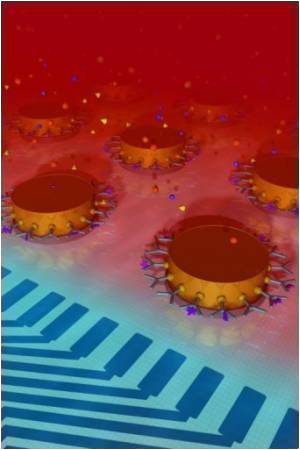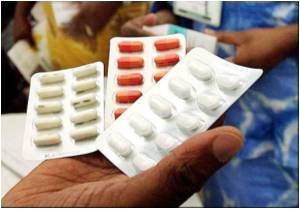Kansas State University researchers are developing a nanotechnology-based biosensor that may allow early detection of both cancer cells and pathogens, leading to increased food safety

Their research focuses on E. coli, but Syed said the same technology could also detect other kinds of pathogens, such as salmonella and viruses.
"Kansas is a leading state in meat production and the poultry industry," he said. "Any outbreak of pathogens in these industries causes huge financial losses and a lot of health risks. We want to prevent these outbreaks by detecting pathogens at an early stage."
For more than three and a half years, Syed's research has focused on developing nanotechnology-based biosensors for pathogen detection and cancer biomarker detection. He began the research as a doctoral student under the direction of Li, who has researched nanotechnology for 15 years.
"Nanotechnology is a very exciting area," Li said. "It really provides an opportunity to solve problems for health care and food safety. It can also be helpful for the environment and energy issues."
An article on this work has been accepted for publication in the scientific journal Electrophoresis.
Advertisement















